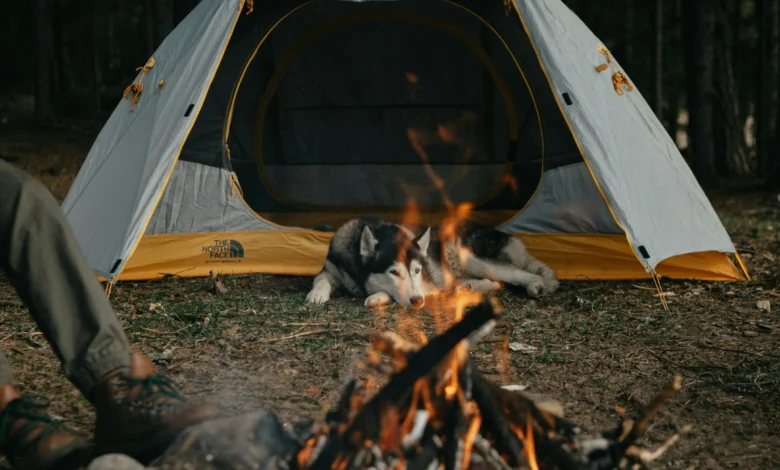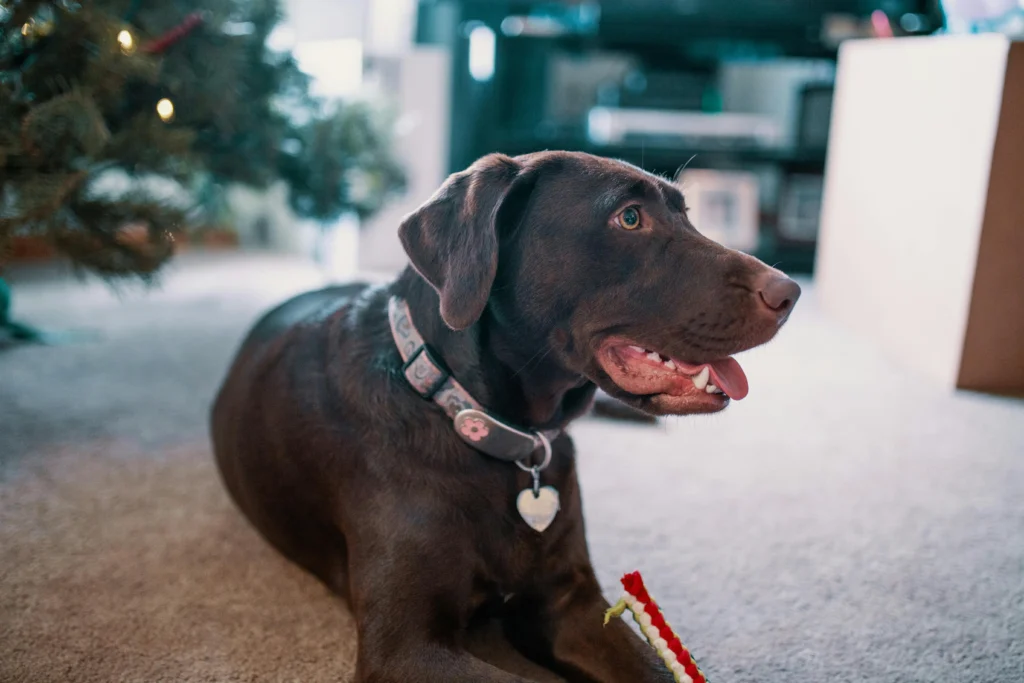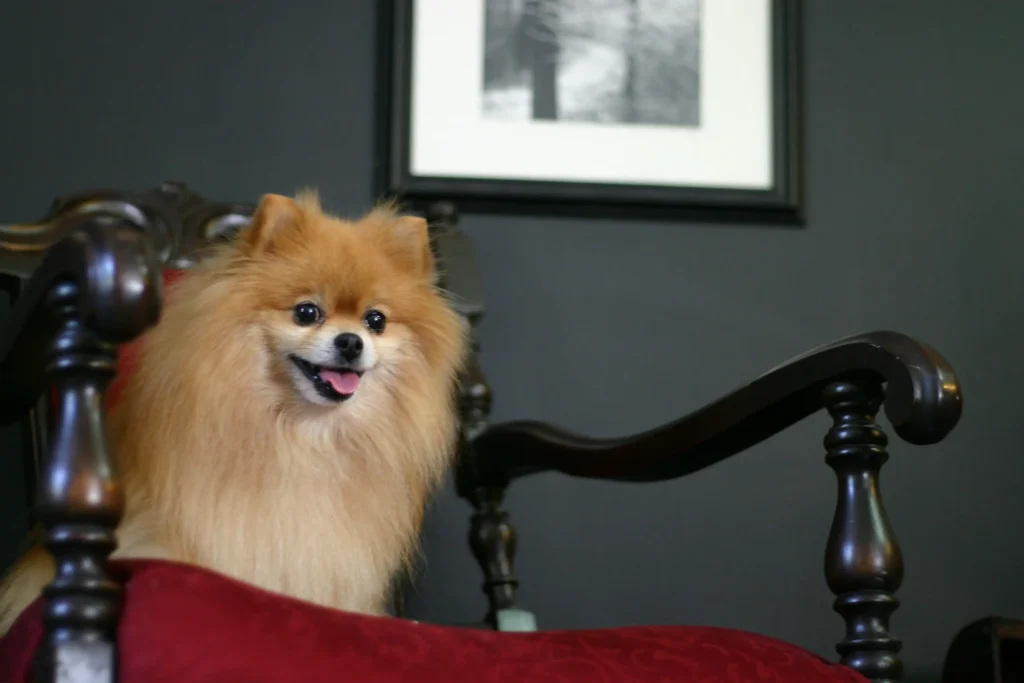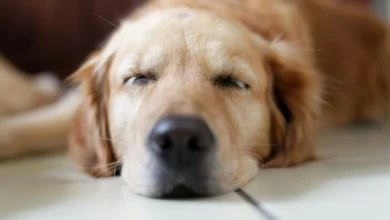Why Is My Dog Panting at Night?

You’re lying in bed, listening to your furry companion’s heavy breaths in the dark. While panting is natural for dogs after play or on hot days, hearing it persistently at night can stir worry. Understanding when this behavior signals a deeper issue is key to ensuring your pet’s well-being.
Panting helps dogs cool down, but restlessness or excessive breathing in cooler environments may indicate discomfort. Factors like age, breed, or underlying health conditions can influence these patterns. For example, brachycephalic breeds like Bulldogs often struggle more with temperature regulation.
Common triggers range from heatstroke and anxiety to chronic illnesses such as heart disease. Observing accompanying symptoms—like coughing, lethargy, or changes in appetite—can provide clues. Early detection allows for timely care, preventing minor concerns from escalating.
By recognizing what’s typical for your pet and acting on unusual signs, you become their strongest advocate. For peace of mind, consider booking a veterinary checkup today to address any lingering questions about their nighttime habits.
Common Causes of Excessive Panting
Nighttime panting often stems from three main categories: physical health conditions, environmental stressors, or emotional triggers. Recognizing these patterns helps you respond effectively to your pet’s needs.
Overheating and Heatstroke Dangers
When body temperature rises above 106°F, dogs risk heatstroke—a life-threatening emergency. Short-nosed breeds like Pugs or Boxers pant heavily to cool down but struggle in warm environments. Always provide water and shade during hot nights.
Chronic Health Conditions
Cushing’s disease disrupts cortisol levels, leading to excessive panting, increased thirst, and a pot-bellied appearance. Heart or respiratory issues may cause labored breathing after mild activity. Senior dogs often show these signs alongside fatigue or coughing.
Stressors and Environmental Factors
Loud noises or separation anxiety can trigger rapid breathing. Pain from arthritis or injuries might also lead to restless nights. Monitor rooms for poor airflow or high temperatures, which worsen discomfort.
Early detection of these issues improves outcomes. Track changes in behavior, appetite, or energy levels—especially in older pets. If symptoms persist, consult your veterinarian promptly.
why is my dog panting at night

When cooler evenings don’t ease your pet’s rapid breathing, hidden stressors or discomfort could be at play. Behavioral factors often explain nighttime panting in otherwise healthy dogs, especially when temperatures are mild. Recognizing these subtle cues helps you address their needs proactively.
Stress, Anxiety, and Pain Indicators
Your canine companion might pant excessively due to separation anxiety, loud noises, or unfamiliar routines. Look for these signs alongside heavy breathing:
- Pacing or inability to settle
- Whining or clingy behavior
- Excessive licking or trembling
Chronic pain from arthritis or injuries can also cause panting restlessness. As one veterinary behaviorist notes: “Dogs often mask discomfort—nighttime is when their guard drops.”
Related post: Why Do Dogs Snore?
Canine Cognitive Disorder and Age-Related Changes
Senior pets may exhibit confusion or disrupted sleep cycles due to cognitive decline. This issue, sometimes called “dog dementia,” affects their ability to breathe calmly at night. Watch for:
- Staring at walls or getting “lost” in familiar spaces
- Increased vocalization after dark
- Accidents indoors despite prior training
Sudden environmental changes—like moving homes or new family members—can amplify these reasons for distress. Track patterns over 3-5 nights to identify triggers before exploring solutions.
Effective Remedies and When to Seek Veterinary Care
Swift action at home paired with timely veterinary visits ensures your companion’s well-being. Simple adjustments to their environment often ease nighttime discomfort, while clear warning signs demand professional attention.
Home Remedies and Temperature Regulation Tips
Keep sleeping areas cool (68-72°F) using fans or air conditioning. Always provide fresh water and cooling mats for breeds prone to overheating. Regulate body temperature by avoiding evening exercise during heatwaves.
For anxious pets, try these calming strategies:
- White noise machines to mask disruptive sounds
- Weighted blankets for gentle pressure therapy
- Pheromone diffusers near resting spots
Identifying Emergency Symptoms and Vet Appointments
Contact your veterinarian today if you notice:
- Bright red or blue-tinged gums
- Collapsing or inability to stand
- Labored breathing lasting over 30 minutes
Many hospitals offer 24/7 emergency care—don’t wait until morning for critical issues. As Dr. Ellen Carter advises: “Panting that disrupts sleep often signals pain or organ distress needing immediate evaluation.”
Schedule an appointment with your vet if mild symptoms persist beyond three nights. Track patterns using a symptom journal to help professionals pinpoint causes faster. Remember: Early intervention improves outcomes for nearly 90% of respiratory-related cases.
Conclusion

Your pet’s nighttime restlessness can reflect various factors—from chronic health conditions to environmental stressors. This article explored how body temperature imbalances, anxiety triggers, or breed-specific vulnerabilities might disrupt normal breathing patterns. Flat-faced breeds like Bulldogs often face greater challenges, but any dog’s ability to breathe comfortably depends on timely care.
Monitoring changes in behavior—such as increased pacing or labored breathing—provides critical clues about their well-being. If symptoms escalate, contacting an emergency veterinary clinic immediately could save their life. Even mild but persistent panting warrants a professional evaluation.
Remember: Early intervention helps pets recover faster. Many clinics welcome new patients seeking answers about unusual nighttime habits. By staying observant and proactive, you ensure your companion stays safe and relaxed after dark.
Don’t hesitate to get in touch with your local vet team. Their expertise can pinpoint hidden issues, giving you peace of mind while safeguarding your pet’s health.
FAQ
Can stress or anxiety cause nighttime panting?
Yes. Loud noises, changes in routine, or separation anxiety can trigger stress. This may lead to heavy breathing or restlessness. Calming techniques like white noise machines or pheromone diffusers often help reduce anxiety-driven panting.
How does age affect a canine companion’s breathing patterns?
Senior dogs may develop cognitive decline, arthritis, or conditions like Cushing’s disease. These age-related changes can disrupt sleep cycles and cause nighttime panting. Regular vet checkups help manage symptoms early.
When should excessive panting prompt an emergency veterinary visit?
Seek immediate care if panting is paired with pale gums, collapse, or labored breathing. These signs could indicate heatstroke, heart failure, or respiratory distress. Timely intervention improves outcomes for critical cases.
Do certain breeds struggle more with regulating body temperature?
Brachycephalic breeds (e.g., Bulldogs, Pugs) often face breathing challenges due to short airways. Their dog ability to cool down is limited, increasing overheating risks. Provide cool spaces and avoid vigorous activity during warm hours.
Can pain lead to panting even if no visible injury exists?
Absolutely. Internal discomfort from conditions like pancreatitis or joint inflammation often causes subtle symptoms. If your pet pants persistently without obvious triggers, schedule a veterinarian appointment to rule out hidden health issues.
Are there home remedies to ease heavy panting at night?
Ensure access to fresh water, maintain a cool room temperature, and use breathable bedding. For mild anxiety, compression wraps or calming supplements may help. Always consult your vet before trying new treatments.


